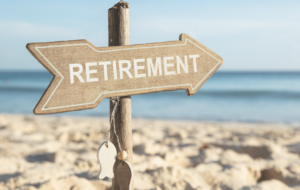Being self-employed offers personal autonomy, flexibility, and control over your income. However, it also brings financial challenges, especially when your income is variable. If you’ve successfully transitioned from Corporate America and are grossing over $250,000 annually, here are six strategies to help you save better and ensure financial stability:
1. Track Your Expenses and Align Them with Your Values
To improve your savings, meticulously track your expenses. Understanding your cash flow is crucial for making informed decisions:
– **Leverage Technology:** Use apps like The Living Balance Sheet®, QuickBooks, or YNAB (You Need A Budget) to track and categorize transactions. Compare your spending with your values and identify areas for adjustment. How does your actual spending align with your priorities? What changes can you make to better align with your values?
– **Use Cash for Certain Expenses:** Using cash for categories like groceries, entertainment, or dining out helps control spending and limits overspending by setting a tangible limit. In a consumeristic world of credit cards, it can be hard to resist immediate impulses. Using cash for certain categories can help you stay aligned with your values.
2. Pay Yourself First
We tend to treat our future selves akin to a stranger on the street, with little regard. Love your neighbor as yourself and your future self 😊! :
– **Delineate Accounts for Their Proper Jobs:** Create a separate Wealth Building Account (WBA) for savings, distinct from your checking account, to reduce temptation and improve savings. Too many people try to save money inside their checking account, but its easy access makes it a poor choice for saving.
– **Automate Expenses and Increase Savings:** Automate transfers from your business account to your wealth-building account. Set up your checking account to receive a fixed amount monthly for expenses. This system helps manage variable income and puts you in control of your spending while automatically making you a better saver over time.
3. Determine the Best Structure for Your Business
Choose the most beneficial business structure to optimize financial health and savings:
– **Sole Proprietorship vs. LLC vs. S Corporation vs. C Corporation:** Each structure has different tax implications and liability protections. For instance, an S Corporation can offer tax advantages by allowing you to pay yourself a reasonable salary and take additional income as dividends, which may be taxed at a lower rate and allow for greater tax deductions. Consult a CPA or tax professional to find the best setup for your situation.
4. Review Your Insurance Costs
Insurance is crucial for risk management. Ensure your coverage aligns with your needs:
– **Self-Insuring vs. Catastrophic:** Adjust coverage to balance self-insurance and catastrophic risk transfer. Are you paying for coverage that you could easily self-insure? Perhaps you can adjust your coverage to save on costs. Conversely, you may be self-insuring risks that you cannot manage, so transferring catastrophic risks to an insurance company can free up dollars on your balance sheet.
– **Working with a Broker:** Use a broker for home, auto, and umbrella coverage to compare policies and get the best rates. Brokers can pit carriers against one another to get the same coverage at a lower cost. Review your coverage every three years to ensure cost-effectiveness.
5. Reduce Leakage to Taxes, Fees, and Duplicate Costs
Minimize financial leakage to retain more of your earnings:
– **Tax Efficiency:** Optimize your savings to minimize tax impacts, avoiding high short-term capital gains and utilizing tax-advantaged accounts. Consider contributing to retirement accounts like a SEP IRA or Solo 401(k) to reduce taxable income.
– **Lower Fees:** Ensure fees for financial products are justified by the value received. There are no free lunches, but it’s crucial to ensure that the fees being paid are commensurate with the value provided.
– **Eliminate Duplicates:** Review subscriptions, memberships, and services to cancel redundant or overlapping ones. This practice helps ensure that the maximum amount of money stays on your balance sheet over time.
6. Create Greater Efficiency by Giving One Dollar Multiple Jobs
Maximize the efficiency of your cash flow by assigning multiple roles to each dollar:
– **Multi-Use Funds:** Use an emergency fund as a buffer for irregular income. Similarly, investments can provide growth potential for future goals like retirement while contributing toward short-term liquidity.
– **Consider Permanent Whole Life Insurance:** This product can offer liquidity, tax-deferred growth, and tax-efficient strategies , enhancing tax efficiency and providing future passive income while protecting your family. Whole Life Insurance can be a versatile tool, providing liquid cash, reducing temporary death benefit needs, and creating an asset that can enhance future passive income.
Implementing these strategies can enhance your savings and build a stable financial future as a self-employed individual. Consistency and regular financial reviews are key. With diligent planning and smart management, you can achieve your financial goals and enjoy the freedom that self-employment offers.
For a review of your situation or any questions, take advantage of a complimentary consultation today.
2024-176670 Exp 6/26
Guardian, its subsidiaries, agents and employees do not provide tax, legal, or accounting advice. Consult your tax, legal, or accounting professional regarding your individual situation. The information provided is based on our general understanding of the subject matter discussed and is for informational purposes only. The Living Balance Sheet® (LBS) and the LBS Logo are service marks of Guardian. © Copyright 2005-2024 Guardian
This material contains the current opinions of Joel Gardner and Consolidated Planning only. These are not the opinions of Park Avenue Securities, Guardian, or its subsidiaries. Registered Representative and Financial Advisor of Park Avenue Securities LLC (PAS). Securities products and advisory services offered through PAS, member FINRA, SIPC. Financial Representative of The Guardian Life Insurance Company of America® (Guardian), New York, NY. PAS is a wholly owned subsidiary of Guardian. Consolidated Planning, Inc. is not an affiliate or subsidiary of PAS or Guardian.CA Insurance License #- 4122962




